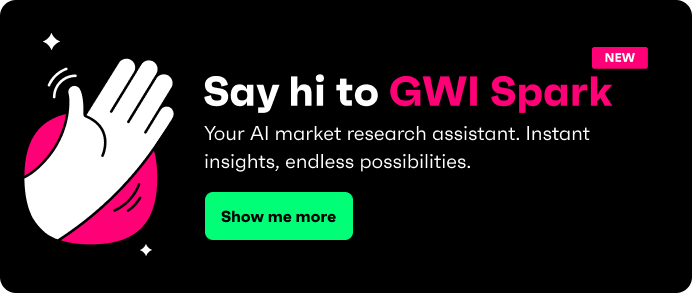
Today’s marketing world feels like it’s splintering: more channels, stricter privacy rules, rising costs, and consumers who expect more than they ever have before.
It’s getting harder to reach people, but it’s also never been more important to get it right. Life’s not fair, is it?
Old-school segmentation, think generic age brackets or catch-all personas, just doesn’t cut it anymore. Audience marketing takes a smarter route: looking beyond who your customers are to uncover why they act the way they do. These deeper insights make your message both hit home and drive real results that you can see.
What is audience marketing?
Audience marketing means crafting campaigns tailored to specific consumer groups based on shared behaviors, interests, motivations, or attitudes. Instead of lumping people into broad boxes like “18–34” or “urban millennials,” it asks the deeper question: why do they choose what they choose?
And because tastes change fast, new trends, tech, cultural shifts…smart marketers don’t set their segments in stone. They keep checking real data and tweaking their view, so campaigns keep feeling fresh and relevant.
Why audience marketing matters now
Marketing today comes with increased accountability. Pressure to demonstrate ROI is intense, and marketers face heightened challenges due to changing privacy regulations and the deprecation of third-party cookies.
With traditional targeting methods quickly becoming obsolete, marketers risk wasting time and money on strategies built on outdated assumptions. In short, marketers are under the microscope.
Audience marketing flips the script. Instead of guessing, you build your strategy around real, up-to-date data, collected with consent, about what your audience actually does and cares about.
With tools that track these shifts in real time, like GWI, you can quickly pivot when trends change. Less guesswork, more impact for every dollar spent.
What makes great audience marketing?
Effective audience marketing goes beyond basic demographics and requires marketers to think deeply about the nuances of consumer behavior. The best segments usually share four things:
- They’re specific: Instead of “young adults,” you might target “first-time homeowners who binge true crime podcasts.”
- They’re built on great data: Successful segments rely on fresh, accurate data, capturing current consumer behaviors and attitudes rather than relying on historical or third-party data alone. Not last year’s surveys, we’re talking right now.
- They’re flexible: As tastes shift, so should your segments.
- They tie back to goals: Whether it’s boosting sign-ups, growing loyalty or driving sales, every segment should support a clear outcome.
Sounds like a lot, but if you make use of features within platforms such as GWI, where the Audiences tool taps into detailed, real-time data points on consumers, then it's easy. From their streaming preferences and brand affinities to deeper psychographic traits, this level of deep insights allow for genuinely tailored, impactful campaigns.
How to build an audience marketing strategy
Developing an effective audience marketing strategy involves several interconnected steps.
Want to make audience marketing actually work? Start here:
- Set clear goals. Is it awareness, sales, loyalty? Your goals shape your segments.
- Trade guesses for data. Use tools like GWI Audiences to build segments based on real behaviors, not gut instinct.
- Test and tweak. Platforms like GWI Dashboards let you track what’s landing and what isn’t, so you can refine as you go.
- Spot trends early. Tools like GWI Spark help you catch new habits or interests before your competitors do.
When you put these steps together, you build a strategy that’s flexible, data-driven, and ready to keep up with your audience.
Real-world example: Tequila Avión’s smarter audience strategy
Here’s audience marketing in practice. Tequila Avión used to target who they thought their typical drinker was. Then they dug into data-driven insights from GWI and found something unexpected: a group of consumers keen to ‘trade up’ to premium spirits. By shifting their messaging to speak directly to this audience, they boosted engagement and saw real results.
This shows exactly why audience marketing matters: it really empowers brands to look beyond assumptions and let rich, consented data guide your strategy.
The bottom line for marketers
Audience marketing at its heart isn’t about sticking labels on people, but rather it’s understanding what really drives them.
Smarter segmentation helps you:
- Create targeted, powerful audience segments.
- Spot new trends before they hit the mainstream.
- Keep refining your strategy with fresh data.
Brands willing to look past surface-level traits and dive into real insights will stay ahead. Ready to see what audience marketing could do for you? Explore GWI’s platform or connect with one of our specialists to start building smarter strategies today.





.webp?width=495&height=317&name=pink_thumb_graphs%20(1).webp)
.webp?width=495&height=317&name=pink_thumb_letter%20(2).webp)